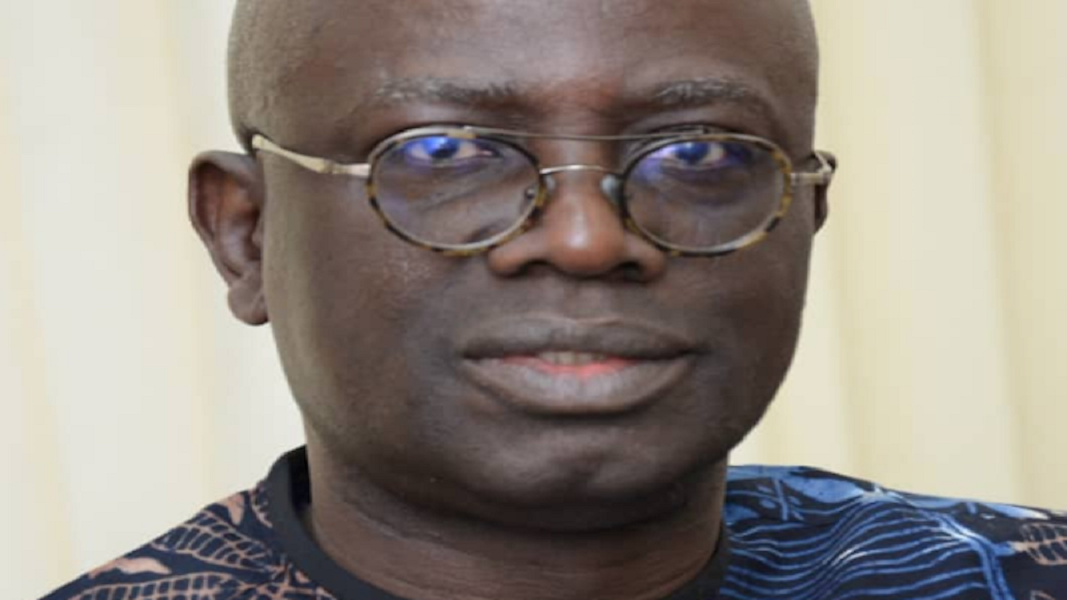A Day at the Lagos Free Zone
21 March, 2024
By Olusegun Adeniyi
During a recent encounter with Mr Haresh Aswani, who I was meeting for the first time, a mutual friend said jocularly that he was sure I would have at least two of his (Aswani’s) company’s products in our house. I expressed my doubt. When the friend identified the company as Tolaram Group, a Singaporean family business to which I wasn’t familiar, I became even more curious. Until he mentioned Indomie Instant Noodles as one of their products. Indomie is without doubt one of the biggest brands not only of Noodles but also of any products in the country today.
Incidentally, Aswani, who chairs Tolaram Group in Africa has been in Nigeria for more than three decades and is also the Honorary Consul-General of Singapore in our country. As I would learn, Indomie is just one of the many premium household products either being manufactured by the Tolaram Group or in which they are the main distributor. Dano Milk, Colgate toothpaste, Power Oil, Hypo cleaner, Kellogg’s, Pringles, Coco Pops are some of the others. But what Aswani focused on that day is the Lagos Free Zone (LFZ), a project he described as Nigeria’s first privately owned free zone with a fully integrated deep-sea port, covering an area of 830 hectares. In Lagos a few weeks ago, I visited the LFZ. Fully equipped with world-class infrastructure, a single clearance window for ease of doing business, and integrated with the Lekki deep seaport spanning 90 hectares, I was dazed by what I saw.
Built in partnership with China Habour Engineering Company (CHEC), the Lagos State Government and the Nigeria Port Authority (NPA), construction of the Lekki Port was commenced in 2012 when Babatunde Fashola was governor and is to date the single largest private infrastructure investment in the country. That such a significant investment of about $2.5 billion would be committed along the Lekki Corridor is an indication of the potential of that axis for the development of both Lagos and our country. The Lekki Corridor stretches from Victoria Island along the Peninsula to Epe with the Expressway serving as its primary artery. I understand that there is Lekki Free Zone owned by the Lagos State government and some Chinese consortium, it is distinct from the LFZ of the Toolaram Group which is a private entity. But Lagos State also has a 20 percent equity in the Lekki Port within the LFZ. In my chat with the LFZ Managing Director, Dinesh Rathi who took me on a tour of completed facilities, what they are trying to create within the economic zone which entices businesses with tax breaks and simplified procedures, “is a ‘city within a city’ that integrates industries, residences, and commercial spaces, all functioning seamlessly together.”
The Lekki Corridor, as Rathi explained, is divided into four quadrants. The fourth quadrant is where the Lekki Deep Sea Port, Lagos Free Zone, Dangote Fertilizers & Refinery Complex are domiciled. “It is a dynamic region on the rise. It offers exciting opportunities for businesses and residents seeking a modern and vibrant environment,” said Rathi who reeled out the benefits of the Lekki Port equipped with modern facilities, including those not available in either Apapa or Tin Can Ports. For instance, the Lekki Port has five ship-to-shore (STS) cranes for loading and unloading intermodal containers from ships and 15 rubber tired gantry (RTG) cranes. Completed in April last year, the Lekki Port recently welcomed its first transshipment vessel and consistently receives an average of one vessel per week since its launch, according to Rathi.
I was also taken through the history of the Tolaram Group. Established in 1948, and structured as a holding company, it boasts a diverse portfolio spanning various sectors, including fintech ventures which, according to Rathi, “involves providing innovative solutions for financial services and transactions in emerging markets.” Additionally, their infrastructure and industrial projects contribute to building essential structures and industries that form the backbone of economic activity. Some of the facilities I saw include a modern fire station, an expansive truck park, the Colgate factory where I was taken through production processes, several warehouses, a medical facility, police station, residential tower, solid waste management centre, security command center, helipad and three banks. To ensure a reliable and cost-effective energy source for its tenants, as Rathi explained, the LFZ has secured a 20-year Gas Infrastructure Development Agreement (GIDA) that will connect it directly to the national gas transportation grid. To actualise this, a consortium already formed to develop the main pipeline and distribution network within the zone, ultimately delivering piped natural gas to each tenant. The agreement, I was told, also incorporates an LNG solution.
I left the LFZ feeling more optimistic about Nigeria and the prospects for economic growth with the right policies and incentives for investors, local and foreign. But on my way back to the Island, I spent several hours in traffic gridlock along the same Lekki-Epe highway. I can only imagine what would happen on that axis during the coming rainy season and the years to come. This is one of the issues that would have to be resolved by the Lagos State government for the dream of the Lekki Corridor, the LFZ and other big businesses along that axis to become a reality. The federal government can help resolve that if they expedite action on the Coastal Road that has been in the pipelines for years. But for Aswani and the Tolaram Group, I believe they have taken a huge bet on Nigeria. I hope it pays off. Both in their interest and that of our country.


